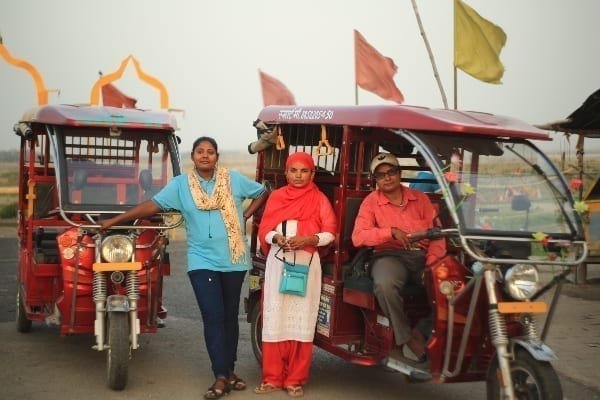Following rigorous scrutiny by energy experts, the winners of 2019’s Ashden Awards will be honoured tomorrow (03 July) at a ceremony in London – in a flagship event of the inaugural London Climate Action Week (01-05 July).
The winners are 10 boundary-pushing initiatives that showcase the power of sustainable energy to cut carbon emissions and transform lives.
Their success proves that bold new business models, policies and technologies can deliver dramatic progress in the face of the growing climate emergency.
A network improving lives
This year’s 10 Ashden Award winners are creating greener homes, cities and transport networks, as well as improving health, reducing poverty and inequality and transforming energy infrastructure.
In 2019 Ashden is honouring three UK-based initiatives and seven from Africa, India, China and Central America. They join a network of over 215 past Ashden Award winners improving lives and saving millions of tonnes of CO2 every year.
Each winner will receive tailored business support to help scale up their work and a prize of up to £20,000.
Ashden Award for Energy Innovation
UK-based Highview Power’s ground-breaking CRYOBatteries enable large-scale energy storage to be built more cheaply and with less environmental damage than lithium batteries, which are linked to destructive mineral mining.
The technology helps keep the grid stable as the share of renewable energy – poised to overtake fossil fuels as the UK’s largest electricity source increases.
CRYOBatteries can also store excess solar and wind energy for later use. They store energy using liquid air and are made more efficient by clever use of the waste cold and heat created during the process.
CRYOBatteries are relatively cheap, long-lasting and easy to make and install.
Ashden Award for Clean Air in Towns and Cities
The London Borough of Waltham Forest has weathered protests and public anger over its bold scheme to clean up the borough’s air and boost walking and cycling.
The multi-million pound ‘Enjoy Waltham Forest’ project features road redesigns, bike training, extra cycle storage and school cycling workshops – all of which improve people’s health and create happier communities.
Calmer streets have also encouraged shoppers to use local businesses. By seeking out and acting on resident feedback, the ambitious project overcame a rocky start and now attracts interest from around the world.
UK Ashden Award for Sustainable Buildings
The UK must retrofit 26 million homes by 2050 in order to radically cut carbon emissions. Energiesprong – ‘energy leap’ in Dutch – is an innovative solution that could play a big role in hitting this target.
With backing from the National Energy Foundation (NEF), Energiesprong UK helps social housing providers create warmer, greener homes. Walls and other large components are made off-site, which allows whole-house retrofits to be done quickly and with minimum disruption to tenants. Energiesprong’s work comes with a 30-year energy performance guarantee.
Ashden Award for Sustainable Mobility
Rickshaw drivers in India work long hours with low pay and job security, in cities where air pollution is many times above World Health Organisation guidelines. In 2017, 1.2 million people in India were killed by the effects of air pollution.
SMV Green creates fair working conditions with electric rickshaws and reliable contracts. It empowers drivers to buy their vehicles and earn more money while taking steps towards healthier cities.
The organisation’s radical Vahini programme (main image) is training some of India’s first women rickshaw drivers, creating secure incomes for them and offering safety and peace of mind for their female passengers.
International Ashden Award for Sustainable Cities and Buildings
EQuota Energy has saved customers more than $6.8m in energy bills, and prevented more than 150,000 tons of CO2 emissions.
The Chinese software company gives building owners and landlords world-leading smart energy management solutions. By monitoring energy use and drawing on artificial intelligence and ‘big data’ technology, EQuota helps buildings become more energy efficient.
The result? Lower energy costs and reduced urban pollution – all without any intrusive equipment or installation work.
 Play Video about This Rock Might Just Save The World
Play Video about This Rock Might Just Save The World Play Video about Play 2 hours of rock
Play Video about Play 2 hours of rock Play Video about Play 2 hours of brook
Play Video about Play 2 hours of brook Play Video about Play 2 hours of sheep
Play Video about Play 2 hours of sheep











































